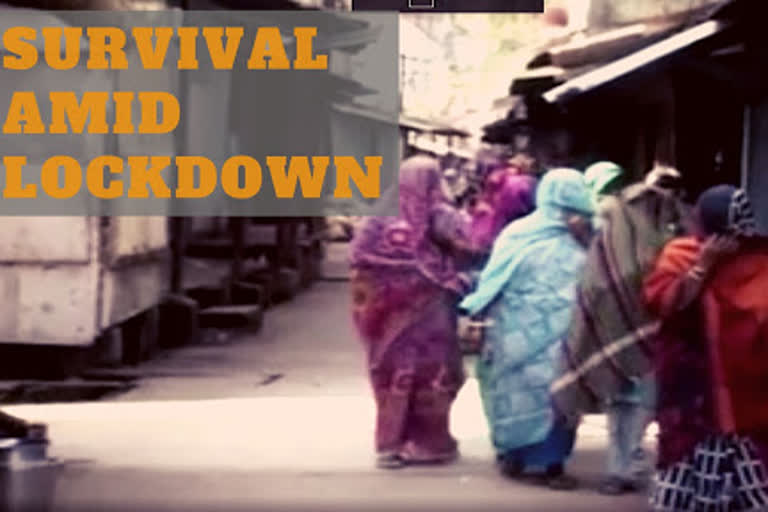Silchar (Assam):Even as the impact of the 21-day nationwide lockdown, which has been imposed to contain the spread of novel coronavirus, on daily wage workers and those engaged in the unorganised sector is visible along the interstate highways and state borders, with hundreds of them migrating on foot to their native villages due to lack of earning opportunities in urban areas, there exists another community of such workers which is struggling to make ends meet.
The sex workers residing in the Radhamadhab Road - a red-light area in Assam’s Silchar town - have been out of work ever since the lockdown was announced on March 24.
Amid the suspension of public movement and major economic activities, these women, whose survival depends on the daily income that they earn from their customers, are now at the mercy of the state and local NGO’s.
Also read:CPCB warns of airborne diseases if coronavirus waste not handled properly
While the nearly 200 families residing in what is often termed as ‘Nishidha Palli’ (forbidden alley) have received some support from the state in the form of delivery of essentials such as rice, pulses and other food items, apart from frequent visits by health professionals, Reena (name changed) feels that the essentials provided to them are not sufficient.
“We are doing fine. Doctors have visited us. Police officers have provided us with some essential food items but it would have been better if they would have given us some more rice, pulses and cooking oil,” said Reena.
Reena’s concern was echoed by Rita (name changed) another sex worker from Radhamadhab Road, who said, “We are managing somehow. It would have been very helpful if they (authorities concerned) would have provided us with some more rice and pulses.”
Apart from the lockdown, the social stigma attached to the profession of these sex workers makes it even harder for them to survive times like these.
It may be mentioned here that Assam government has so far identified 20 COVID-19 positive patients and conducted tests on more than 900 people, most of whom took part in the religious congregation at the Hazrat Nizamuddin Dargah in Delhi.
